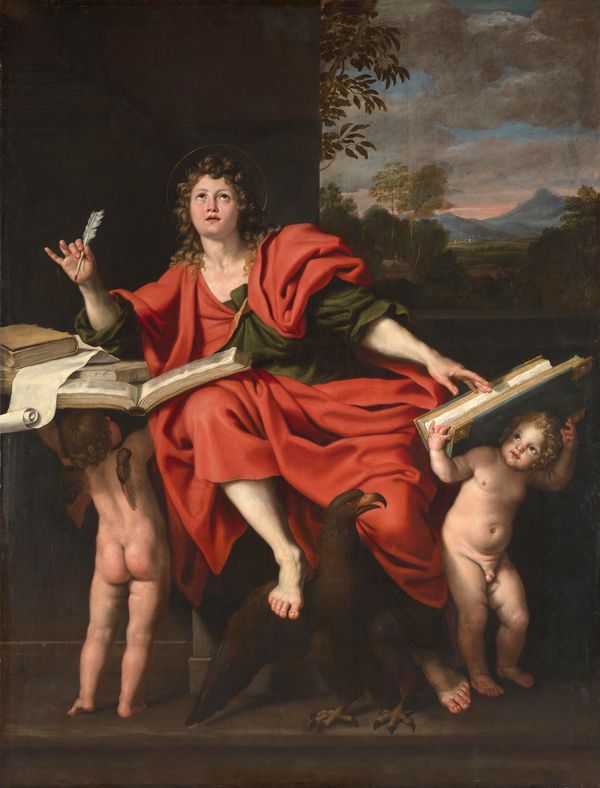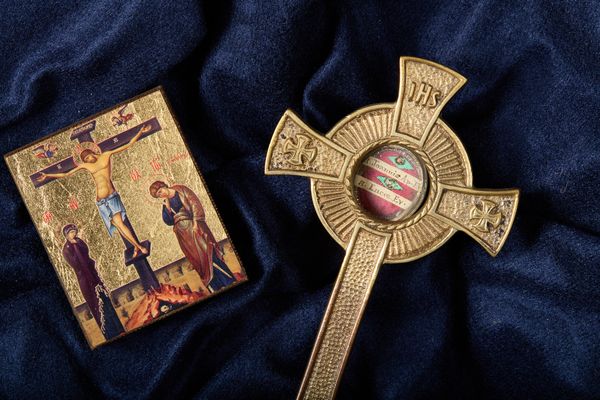St. John The Evangelest is the name given to the author of the Gospel of John. Known as the beloved diciple, stood at the foot of the cross with our blessed mother Mary. "When Jesus saw his mother and the disciple whom he loved standing beside her, he said to his mother, “Woman, here is your son.” Then he said to the disciple, “Here is your mother.” And from that hour the disciple took her into his own home."
St. John After The Gospel
The Christian writers of the second and third centuries testify to us as a tradition universally recognized and doubted by no one that the Apostle and Evangelist John lived in Asia Minor in the last decades of the first century and from Ephesus had guided the Churches of that province. In his "Dialogue with Tryphon" (Chapter 81) St. Justin Martyr refers to "John, one of the Apostles of Christ" as a witness who had lived "with us", that is, at Ephesus. St. Irenæus speaks in very many places of the Apostle John and his residence in Asia and expressly declares that he wrote his Gospel at Ephesus (Against Heresies III.1.1), and that he had lived there until the reign of Trajan (loc. cit., II, xxii, 5). With Eusebius (Church History III.13.1) and others we are obliged to place the Apostle's banishment to Patmos in the reign of the Emperor Domitian (81-96). Previous to this, according to Tertullian's testimony (De praescript., xxxvi), John had been thrown into a cauldron of boiling oil before the Porta Latina at Rome without suffering injury. After Domitian's death the Apostle returned to Ephesus during the reign of Trajan, and at Ephesus he died about A.D. 100 at a great age. Tradition reports many beautiful traits of the last years of his life: that he refused to remain under the same roof with Cerinthus (Irenaeus "Ad. haer.", III, iii, 4); his touching anxiety about a youth who had become a robber (Clemens Alex., "Quis dives salvetur", xiii); his constantly repeated words of exhortation at the end of his life, "Little children, love one another" (Jerome, "Comm. in ep. ad. Gal.", vi, 10). On the other hand the stories told in the apocryphal Acts of John, which appeared as early as the second century, are unhistorical invention. (from The New Advent)

